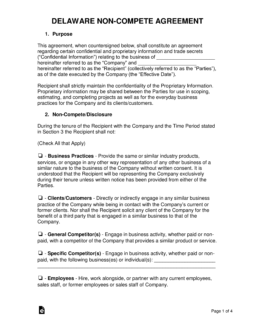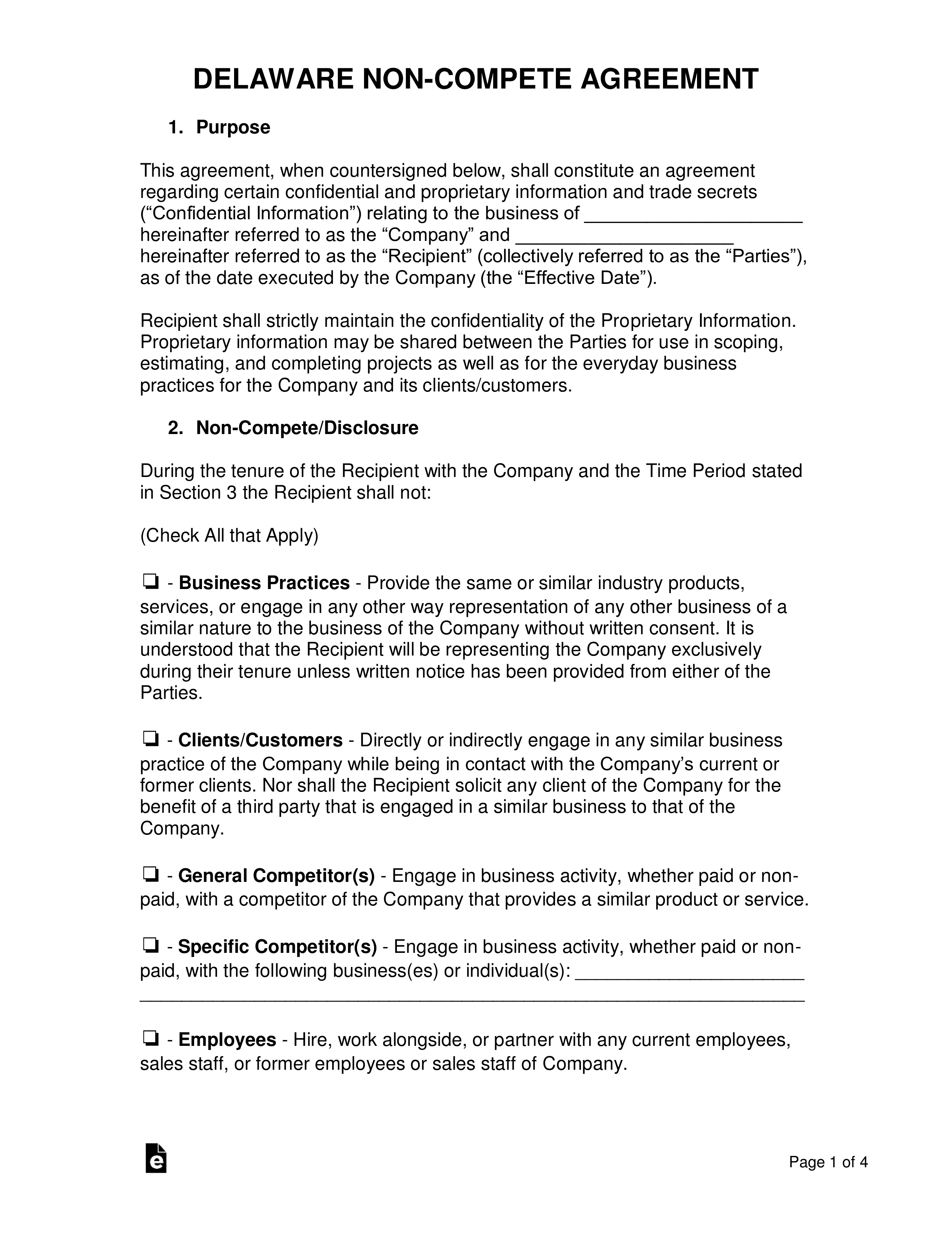Updated February 29, 2024
A Delaware non-compete agreement restricts the right of an individual to practice in a specific field. The agreement should clearly define the scope of which the individual is prohibited. This should include outlining the business types, geographical location, and time period. Broad non-competes that cover areas outside the State of Delaware may not be legally enforceable.
Laws
Legally Enforceable?
Yes, a non-compete is legally enforceable with the only exception against the following:
Continued Employment
The continued employment of an at-will employee supports sufficient consideration for a non-compete.[3]
Maximum Term
“Delaware law generally holds that one-year noncompetes are valid.”[4]
Choosing Delaware as the “Governing Law”
Selecting Delaware as the “Governing Law” in a non-compete may not uphold in court if the employees are not actively working in the State.
In 2 recent court cases, FP UC Holdings v. Hamilton (2020) and Ascension Ins. Holdings, LLC v. Underwood, both petitioners were incorporated in Delaware, although, had a principal place of business outside the State.
In addition, since both employees were working and violated their respective non-competes outside of Delaware, the agreements were not honored by the Chancery Court.
Therefore, it is recommended to select the State of governing law in a non-compete where the employees are actively working or residing.
Blue Penciling Not Allowed
Blue penciling is no longer allowed. In 2011, the Court of Chancery changed its position on blue-penciling due to the advantage it gives an employer in a non-compete.
This is due to an employer having the option to simply make an agreement overbroad and unreasonable. In a worst-case scenario, the court will then have to make amendments to limit the employee.
This process puts the employer in a “no-lose position” as stated below by the court:
More importantly, a court should not save a facially invalid provision by rewriting it and enforcing only what the court deems reasonable. Doing so puts the employer in a no-lose position. If an employer knows that the court will enforce a reasonable covenant as a fallback, the employer has every reason to start with an overbroad provision.[5]


